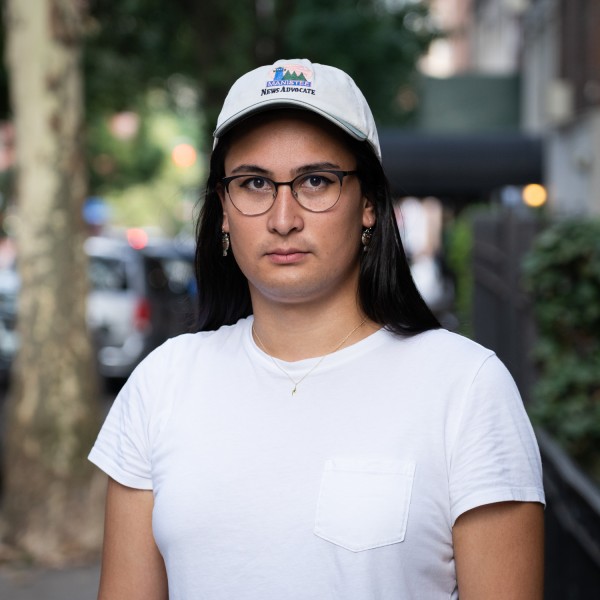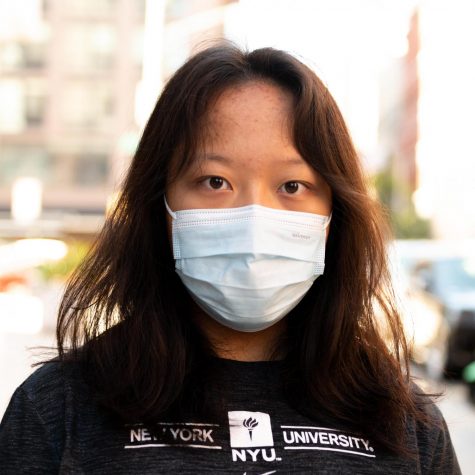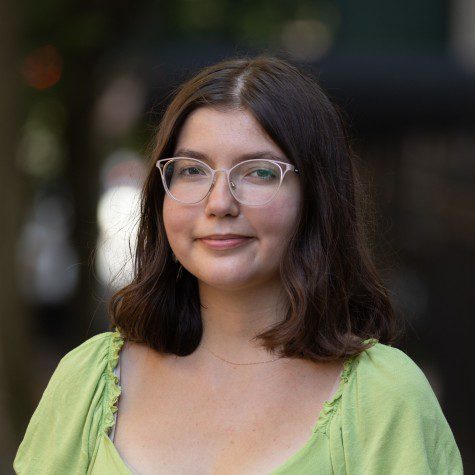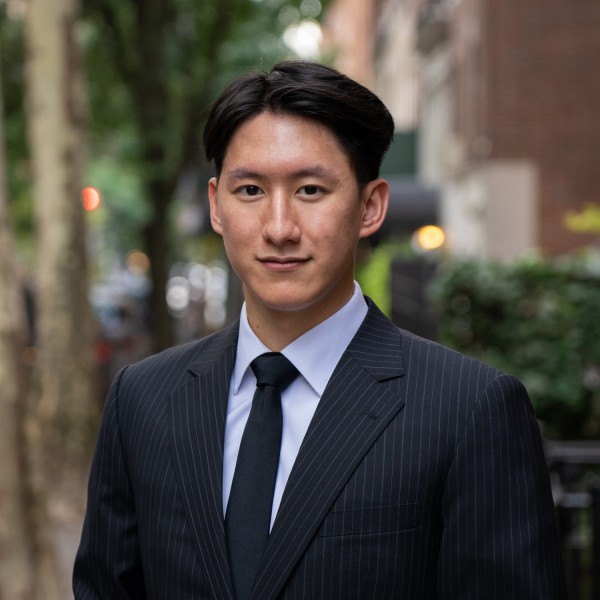Hi everyone!
Congratulations on making it this far through the semester. I’ve almost forgotten what having a normal spring break feels like.
This week on Editor’s Note, I’m featuring something we’ve never really done before and explaining why we’re doing it — the Features section. (Features recently published its first piece, combining comprehensive research with careful editing, clean web design and stunning photography — more below.)
Also in this newsletter, the Arts Issue, profiles and experiments, all from Under the Arch.
Whether you’re on the beach or in the snow (or you’re not in college and don’t get a spring break at all), these are the stories to catch up on over spring break.
|
|

|
|
How a string of student deaths in the early 2000s shaped NYU’s architecture, curriculum and mental health services. (Photo by Kiran Komanduri)
|
|
Those metal screens in Bobst aren’t just for decoration. From Alyssa Goldberg and WSN’s Features team, a deep dive into the history of suicide and suicide prevention at NYU. Read on to learn about the Features section.
Under the Arch, WSN’s magazine, just released the spring 2022 Arts Issue. Explore art collectives across the fields of skateboarding, graphic design, jazz music, pop(-ish) music and visual art.
Read it as a PDF or on the web.
Also from UTA this week: a Tisch TikTok star, and a disabled dancer on accessibility and injury in the performing arts. If you’re looking for something more on the artistic side, check out this photo essay and some thoughts on people-watching.
|
|

|
|
Following recent campus assaults, the Department of Campus Safety added lights under the scaffolding near the Stern School of Business. The department is also adding nine new security cameras east of Washington Square Park. (Staff Photo by Sam Tu)
|
|
NYU added new security measures like lights and cameras around the Stern building in the wake of several recent attacks, but some students are doubting whether the same Department of Campus Safety that initially dismissed the assaults can be trusted to prevent them in the future.
NYU’s graduate student union is calling on the university to make payments they agreed to in last May’s contract. More labor news: Students working at REI’s flagship store in SoHo, which recently voted to unionize, hope that the union will bring improvements to training, scheduling, vacation time and workplace safety.
Two student government representatives put forth a resolution to suspend the NYU Tel Aviv site, contending that an Israeli law that bars foreigners who have called for boycotts of Israel from entering the country is discriminatory and that NYU is violating its own policies by operating the site.
|
|

|
|
Productivity applications and notifications aim to help students remain focused and make progress. (Staff Illustration by Susan Behrends Valenzuela)
|
|
Check out our guide to apps that — hopefully — actually help you focus.
“I was really nervous and didn’t know what the hell I was doing, but it was an amazing time,” illusionist David Copperfield told WSN about the time he taught an NYU course at 16.
NYU’s women’s basketball team has been dominant, finishing the season with a 22-1 record and recently advancing to the third round of the NCAA Division III tournament with decisive wins. WSN interviewed first-year phenom Belle Pellecchia, who was named the UAA Rookie of the Year and Defensive Player of the Year.
20-7, 8-0. NYU’s baseball team showcased dominance in a doubleheader two years — nearly to the day — since their last game.
|
|

|
|
As anti-Asian crimes continue to threaten the well-being of NYU community members, the university should handle reports more swiftly and seriously. (Photo by Sirui Wu)
|
|
This week’s editorial: Asian students were attacked on campus. Why did NYU take weeks to respond?
Srishti Bungle argues that stepping up policing is the wrong way to address rising anti-Asian violence.
Lifting NYU’s mask mandate would endanger vulnerable students and send a message that students are on their own when it comes to COVID precautions, Caitlin Hsu writes.
In a response to a recent WSN op-ed, NYU spokesperson John Beckman reiterated the university’s commitment to NYU Tel Aviv.
|
|
|
What our Features section is for
|
|
Unpaid internships are bad. They’re financially inaccessible to many, and often restrict opportunities to people who can be subsidized by their families while they work for free. Unfortunately, many staff positions at WSN are effectively unpaid internships. (Editors do get a small stipend — more on that next week.)
Earlier this week, we published our first Features piece of the semester, a look at the history of suicide in Bobst Library and how it’s shaped NYU. While there have been sections called “Features” at WSN in the past before, this one’s different.
We’re giving talented, dedicated writers the time and support that it takes to craft longform investigative journalism, and we’re backing up their writing with skilled editors, photographers and web designers. This means that we’re able to delve into complex topics much deeper than we could before.
Rachel Fadem, our Features Editor, was a Deputy News Editor last semester. She saw how the relentless pace of news coverage made it difficult to produce stories that take more time.
“In the past, we've had stories where we've wanted to investigate things further, or we wanted to go deeper into certain stories, or — I hate to use the word ‘feature’ here — but, like, feature something going on that's bigger than just a news event,” she told me. “We didn't really have the capacity to do that from the News desk.”
But what really distinguishes this venture is its core belief that writers deserve to be paid for their work. The amount we can pay them is largely symbolic for now, but the fact that we’re paying them is still a meaningful symbol.
It doesn’t seem right to me that our writers don’t usually get paid. It’s not a real job, sure, but the work is very real. If you’re doing almost the same work you would be compensated for a professional publication, why should that mean you deserve nothing just because of the “student publication” label?
The answer is, of course, that they do deserve to be paid — we literally just can’t. The consequence of this financial circumstance is that we lose out on the contributions of people who can’t afford to take a job that doesn’t pay.
There are many student journalists out there who can’t afford to work for free. They have stories to tell, too, but because college newspapers like WSN rely on unpaid staff, they just can’t justify the time commitment of writing for us.
The goal is to one day be able to pay Features Staff a fair rate for their work, comparable to what freelance journalists get paid at professional publications, so that those students whose voices otherwise wouldn’t be heard get to tell the stories that matter to them. We’re not close to a fair rate yet, but what Features Staff are getting this semester is still closer to a fair rate than what writers at WSN usually get.
College journalism just doesn’t make money, though. While NYU helps make up the difference in some areas, it’s not enough to actually pay people what they deserve for the work they do.
Next week’s Editor’s Note will explain more about our staff stipends. You’ll either be surprised that we get any money at all, or you’ll be surprised that we get so little.
By the way, WSN will not be publishing over the break next week — we’ll be back one week from today with Editor’s Note, then returning to normal publication on Monday. Enjoy your spring break!
—the editor
|
|
|
|



